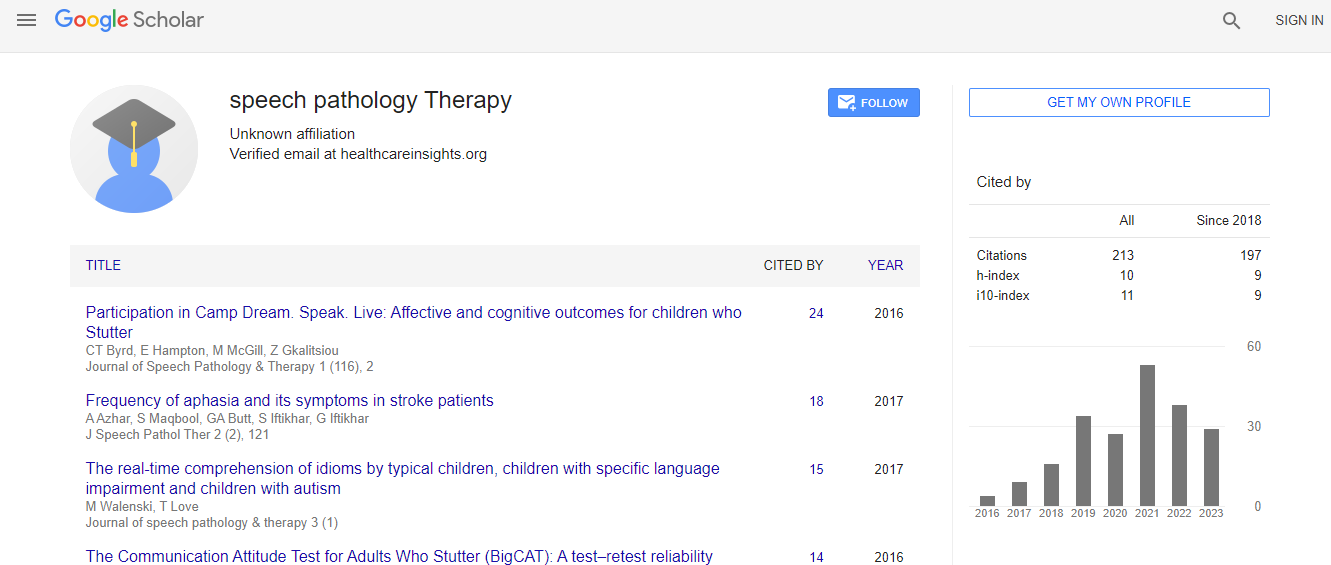Research Article
Comparing Parents' and Young Children's Attitudes Toward Stuttering
Kenneth O. St. Louis*, Mary E. Weidner, Tia M. ManciniWest Virginia University, Morgantown, West Virginia, USA
- *Corresponding Author:
- Kenneth O. St. Louis
Department of Communication Sciences & Disorders
West Virginia University
Morgantown, West Virginia, USA
Tel: 304-293-2946
E-mail: ken.stlouis@mail.wvu.edu
Received date: January 11, 2016; Accepted date: January 30, 2016; Published date: February 10, 2016
Citation: St Louis KO, Weidner ME, Mancini TM (2016) Comparing Parents’ and Young Children’s Attitudes Toward Stuttering. J Speech Pathol Ther 1:104. doi: 10.4172/2472-5005.1000104
Copyright: © 2016 St. Louis KO, et al. This is an open-access article distributed under the terms of the Creative Commons Attribution License, which permits unrestricted use, distribution, and reproduction in any medium, provided the original author and source are credited.
Abstract
Background: In this paper, two new measures of public attitudes toward stuttering, the public opinion survey of human attributes-stuttering/child (POSHA-S/Child), an epidemiological instrument for young children, and the appraisal of the stuttering environment (ASE), a clinical self-report instrument to measure attitudes among family members and close friends of stuttering clients, are compared with the widely-used public opinion survey of human attributes-stuttering (POSHA-S). Previous studies were integrated with a new study to document that both the POSHA-S/Child and the ASE provide similar summary ratings (Beliefs and Self Reactions sub scores and Overall Stuttering Scores) to the POSHA-S.
Purpose: The study sought to document the extent to which measured stuttering attitudes on two new measures, the ASE and the POSHA-S/Child, correspond with an established measure, the POSHA-S. Second, it sought to determine the extent to which being a parent affected adults’ measured attitudes toward stuttering. Third, using the new measures, the study sought to compare young children’s attitudes with those of parents.
Method: In the experimental portion of the study, parents of 3-7 year old children, parents of older children, and nonparents filled out the ASE either in paper or online versions. These results were compared to published research on children’s attitudes using the POSHA-S/Child.
Results: Measured stuttering attitudes of all three groups of parents on the ASE, although disparate for several demographic variables, were nearly the same. Therefore, based on comparisons with reviewed studies of attitudes of young children using the POSHA-S/Child, parental attitudes were uniformly more positive than attitudes of young children.
Implications: The results strongly suggest that one’s parental status has little effect on stuttering attitudes and that parent’ attitudes are more positive than attitudes of their young children.
 Spanish
Spanish  Chinese
Chinese  Russian
Russian  German
German  French
French  Japanese
Japanese  Portuguese
Portuguese  Hindi
Hindi 